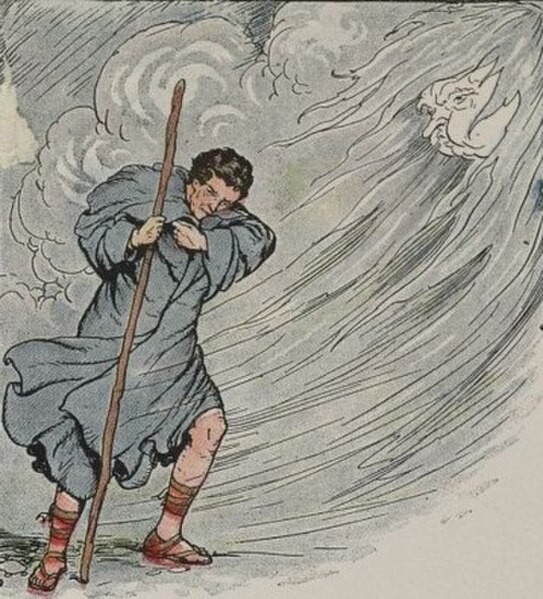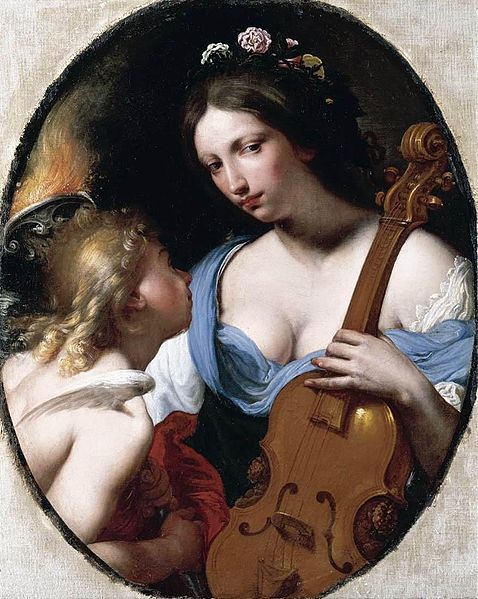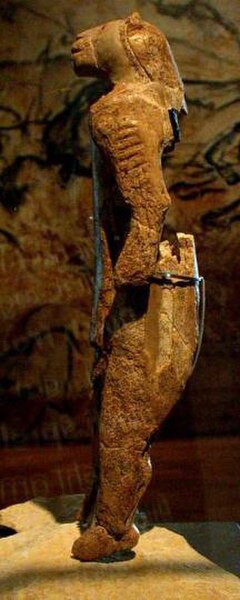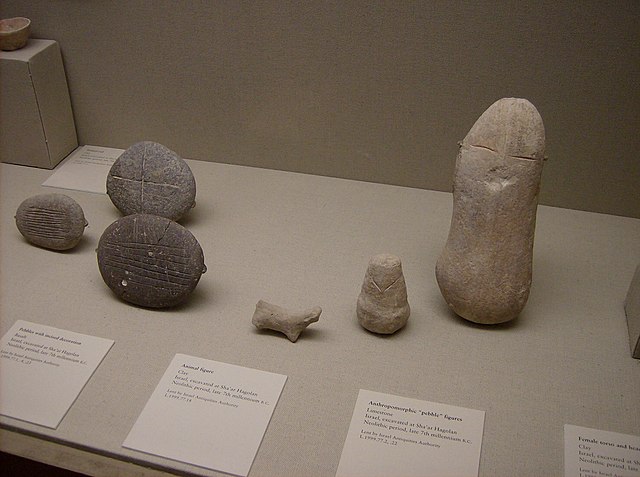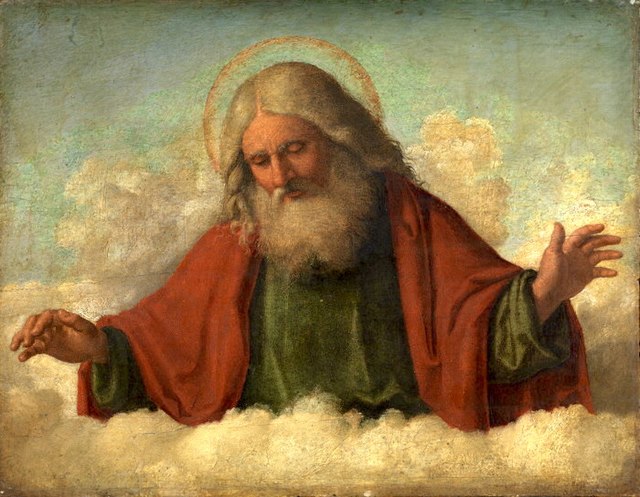Anthropomorphism is the attribution of human traits, emotions, or intentions to non-human entities. It is considered to be an innate tendency of human psychology. Personification is the related attribution of human form and characteristics to abstract concepts such as nations, emotions, and natural forces, such as seasons and weather. Both have ancient roots as storytelling and artistic devices, and most cultures have traditional fables with anthropomorphized animals as characters. People have also routinely attributed human emotions and behavioral traits to wild as well as domesticated animals.
In this illustration by Milo Winter of Aesop's fable, "The North Wind and the Sun", a personified North Wind tries to strip the cloak off a traveler.
Personification of Music by Antonio Franchi, c. 1650
The 35,000 to 40,000 year-old Löwenmensch figurine
Anthropomorphic "pebble" figures from the 7th millennium BC
God the Father is a title given to God in Christianity. In mainstream trinitarian Christianity, God the Father is regarded as the first Person of the Trinity, followed by the second person, Jesus Christ the Son, and the third person, God the Holy Spirit. Since the second century, Christian creeds included affirmation of belief in "God the Father (Almighty)", primarily in his capacity as "Father and creator of the universe".
Raphael's 1518 depiction of Prophet Ezekiel's vision of God the Father in glory
A figurative drawing of God, in the old German prayer books (Waldburg-Gebetbuch), about 1486
God the Father, Cima da Conegliano, c. 1510–1517
The Church of Jesus Christ of Latter-day Saints' depiction of God the Father and the Son Jesus

